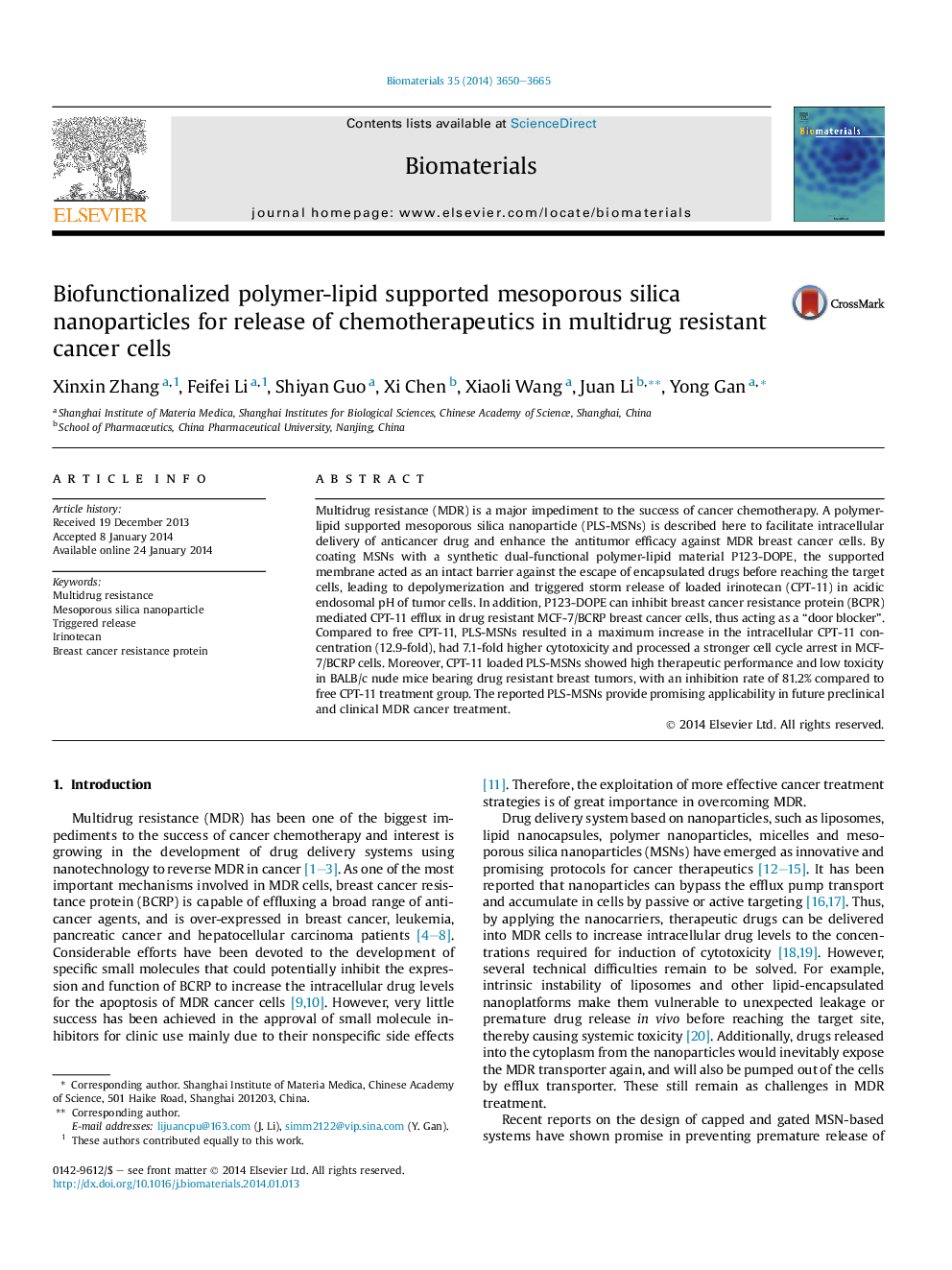| Article ID | Journal | Published Year | Pages | File Type |
|---|---|---|---|---|
| 10228296 | Biomaterials | 2014 | 16 Pages |
Abstract
Multidrug resistance (MDR) is a major impediment to the success of cancer chemotherapy. A polymer-lipid supported mesoporous silica nanoparticle (PLS-MSNs) is described here to facilitate intracellular delivery of anticancer drug and enhance the antitumor efficacy against MDR breast cancer cells. By coating MSNs with a synthetic dual-functional polymer-lipid material P123-DOPE, the supported membrane acted as an intact barrier against the escape of encapsulated drugs before reaching the target cells, leading to depolymerization and triggered storm release of loaded irinotecan (CPT-11) in acidic endosomal pH of tumor cells. In addition, P123-DOPE can inhibit breast cancer resistance protein (BCPR) mediated CPT-11 efflux in drug resistant MCF-7/BCRP breast cancer cells, thus acting as a “door blocker”. Compared to free CPT-11, PLS-MSNs resulted in a maximum increase in the intracellular CPT-11 concentration (12.9-fold), had 7.1-fold higher cytotoxicity and processed a stronger cell cycle arrest in MCF-7/BCRP cells. Moreover, CPT-11 loaded PLS-MSNs showed high therapeutic performance and low toxicity in BALB/c nude mice bearing drug resistant breast tumors, with an inhibition rate of 81.2% compared to free CPT-11 treatment group. The reported PLS-MSNs provide promising applicability in future preclinical and clinical MDR cancer treatment.
Keywords
Related Topics
Physical Sciences and Engineering
Chemical Engineering
Bioengineering
Authors
Xinxin Zhang, Feifei Li, Shiyan Guo, Xi Chen, Xiaoli Wang, Juan Li, Yong Gan,
